Taking elements of the last thirty years of tabletop gaming, and mixing them with a fresh coat of paint, Conquest: The Last Argument of Kings is poised to be one of our hobbies next big games. Let’s take a look at it in a little more depth.
I will be the first to admit that even I was surprised to the response I received to my recent article asking which upstart fantasy game deserved to be getting more attention. To various degrees, each of those games have been generating a quiet buzz in hardcore gaming circles, but overwhelmingly people have asked for more Conquest. The least I could do was to fully immerse myself in the game, and after having spent a week doing little else, I very much understand the allure.
As a preface, let me just say that this is NOT a review. One will be in-coming in the future, but I only feel it is right to do that once I have plenty more games under my belt. That said, I logged a lot of playtime this week and definitely have some initial thoughts.
Where to begin? Well, if the remainder of this article could just be a giant happy-face emoji, I would probably just post that. To say my early days with Conquest have been a joy would be a gross understatement. From top-to-bottom I cannot recall a new game that feels so robust, complete, and that simply “gets it”, right out of the gates, in every regard.
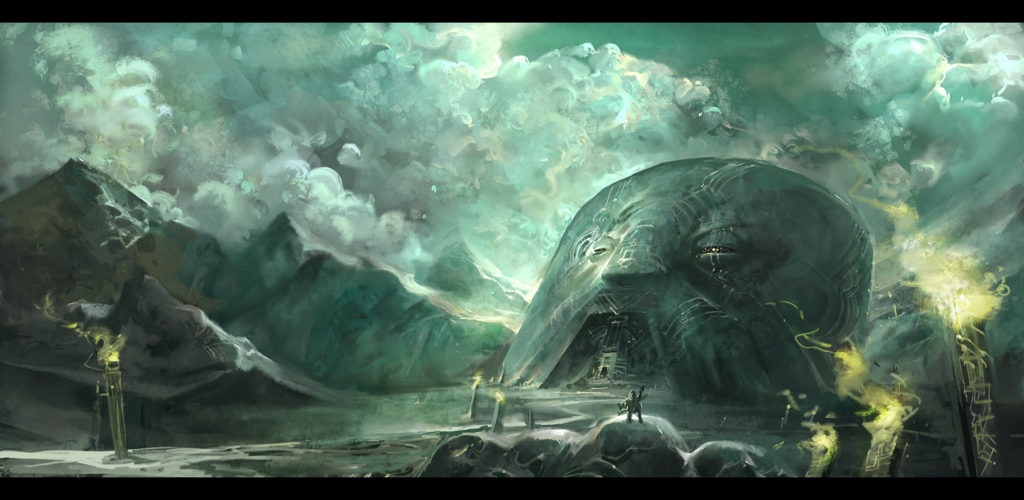
While currently a bit buried on the publisher’s (Para Bellum Wargames) website, Conquest opens with a gripping, and surprisingly fleshed out mythology. Set in the world of Ea, six-hundred years after a nigh-apocalyptic war, the game’s fiction presents a curiously familiar setting. Just enough resembles familiar world mythologies and cultures that you may well wonder if this is our own world’s distant past, or far-off future. In either (or neither) case, the setting clearly has stories to tell already with some pretty richly reimagined races and trope. Just one example is “The Spire”, a faction with only a passing resemblence to various Elves, who instead are literally, and truly alien, weaving flesh with biomancy. I would go into more, but would be doing readers a disservice if I didn’t just let them discover the lore for themselves.
That refusal to simply mimic the tropes of the genre really is the story for the game on the whole. Mechanically it may look recognizable at a glance, but a fuller look paints a picture of a game that embraces what worked for earlier games, but refuses to let any mechanic become a sacred cow.
Players begin with Army List building that evokes feelings of endless customization. As more and more games reject the idea of granularity, Conquest is refreshing in the volume of choice offered. Players create multiple warbands, which combine to make your full army. Each is a hero unit of your choosing (who themselves have LOADS of options for special abilities, access to spells, artifacts, etc…) who can be accompanied by up to four regiments (units) who likewise get options for those who really prefer to micro-manage their point costs. Heroes generally “unlock” and thus can only take a pool of their prefered units which turns on its head the idea of a “troop tax”. In Conquest it is heroes which help shape a playstyle, and units that then reinforce that style. Interestingly this serves to control balance in a subtle way, never letting the game become either Hero-Hammer, or devoid of characters either.
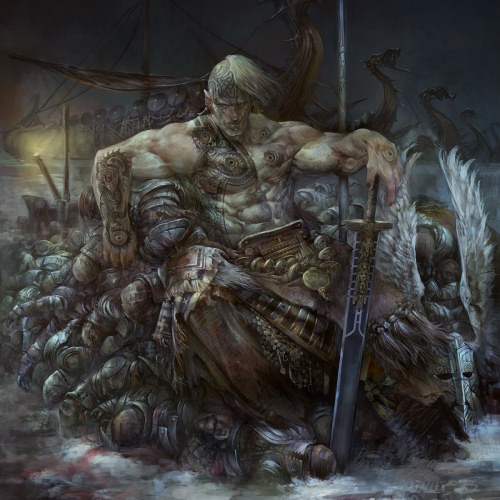
Worth noting is that the game’s core rules and army lists are fully free, and those released army lists (currently four of a promised eighteen!) are overflowing with unit options. This is a game that very much feels the player is smart, and should be allowed plenty of toys to choose their personal strategy from.
When the game next transitions to the table we again have its unique identity on display. ZERO units are deployed at the start of the game, as rolling deployments are a key aspect of shaping the battlefield. Depending on turn number, players roll for their light, medium, and heavy units who may then walk onto the table (when it is their activation), or who can come on the battlefield edges based on a frontline (pun intended) that ebbs and flows as the game continues.
This creates a wildly different and interesting flow to the battles, and causes a strategy to develop around something I haven’t seen in my years of tabletop gaming. Is it wise to advance frail-but-fast unit early to push your frontline forward and create a deployment advantage for a future turn? The overall effect is one where battles really feel like they are a part of a much bigger one, with units coming in from flanks, and vying for positions and table-control being nearly as critical as scoring or removing the enemy.
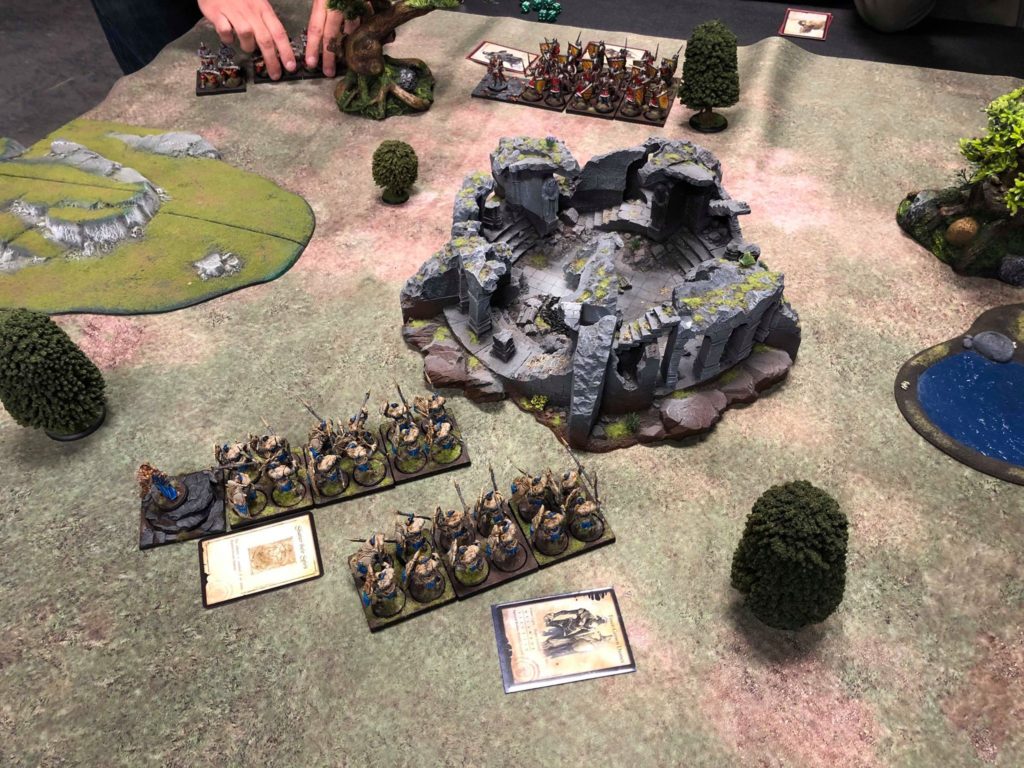
Each player alternates activating units once the main phase of the round begins. Each unit and character comes with a card and before the round begins, players are tasked with making their Command Stack. Essentially players must plan ahead, often making hard choices, as the order the player stacks the cards in determines their activation order. Once active a unit generally gets to do two things from a pool you might imagine, including moving, shooting, striking, retreating, etc.
Without turning this into a rules guide itself, let me just say that the game’s rules are very clear, easy to learn, and yet never seem to sacrifice depth. Player agency just feels like the core design principle, and its ultimate effect seems to be that at the end of a game, you feel as if you have earned your success, or can clearly learn why you lost. With free rules, you need to be very confident in what you are offering, and that is well-earned confidence thus far.
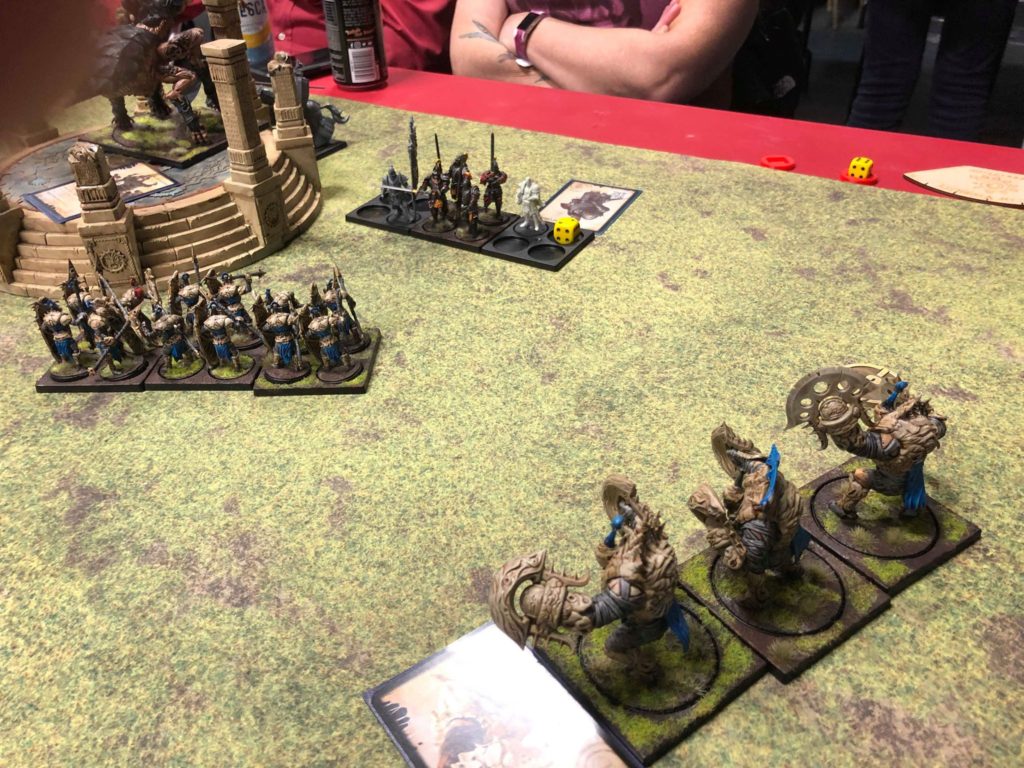
That said, there is a quirk that although minor, is worth mentioning. In Conquest you want to roll LOW on dice. Often wounds, saves, etc… are looking for 1’s and 2’s. While not any issue per-se, there was a definite adjustment for me and my other play-tester, and it was the sole time I felt myself needing to pause and take in things for a moment.
As you can probably guess from this overview, I really, really loved playing Conquest, and now understand this weird “x-factor” the game has over its loyal fans. It is simply something special, with a lot of consideration having gone into every facet of the experience. It doesn’t take much imagination to see a future where this could (and maybe should) be a big competitive game. Likewise, its setting, evocative models (if slightly… large scale), all feel like world-building far in advance of what new companies generally offer.
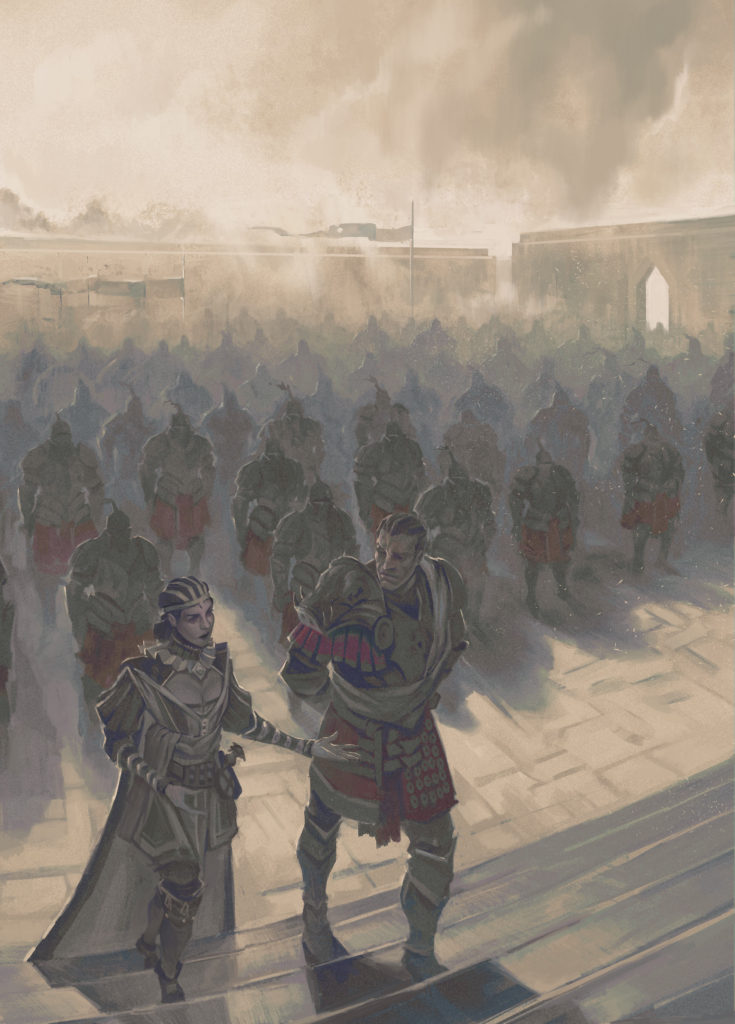
There is a lot to like about Conquest, and its very aggressively priced two-player starter box makes me think we will see swelling player numbers in the coming months. There are a lot of games trying to claim their share of the market, and our hearts, but I have a feeling that Conquest has what it takes to break out of its niche. I definitely want to spend more time digging into this system, but what are your thoughts? Is Conquest: The Last Argument of Kings something you want to see more of? Let me know!
And remember, Frontline Gaming sells gaming products at a discount, every day in their webcart!
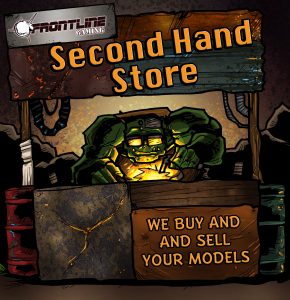
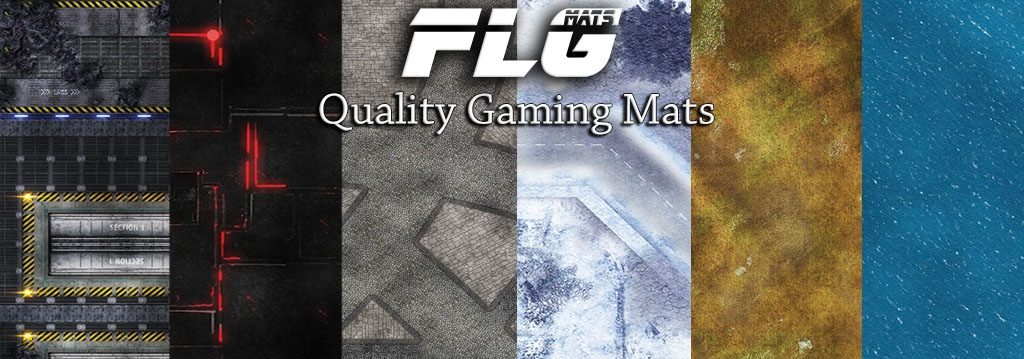


I have been all in on this game for over a year. It really hits on all cylinders.
Definitely looking forward to more conquest content!
Sounds like you got the bug! I was pretty much the same way after playing it. So much so, that I have found myself not interested in playing 40k with my friends. Now all I got to do is get them to invest in this game the way that I did.
Welcome to the game 🙂
You’ll be happy to know that two more factions are supposed to come out this year and two more next year. This year we’re supposed to get the Wadrhun, similar to orcs but with an Aztec influence riding dinosaurs, and a Byzantine inspired undead faction from a region that a god fell on. Next year we’re supposed to get the City States, magitech ancient Greeks, and the Weaver Courts, an offshoot of the Spires that are like wood elves.
You sir are truly a wordsmith. I feel you have captured the feel and flavour of Conquest with this article perfectly. Bravo.
This coming from a beta tester and community Vanguard.
I couldnt have put it better myself. Really.
I am very impressed with the game so far… can’t understate how much of a great first impression the game makes. I really think its tournament community will be impressive and encourage those games or fluff bunnies alike to check it out early.